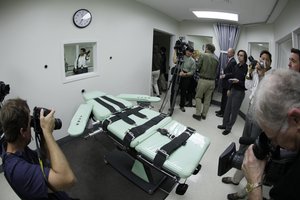
Travel
Travel is the movement of people between relatively distant geographical locations, and can involve travel by foot, bicycle, automobile, train, boat, airplane, or other means, with or without luggage, and can be one way or round trip. Travel can also include relatively short stays between successive movements.
Etymology
The origin of the word "travel" is most likely lost to history. The term "travel" may originate from the Old French word travail. According to the Merriam Webster dictionary, the first known use of the word travel was in the 14th century. It also states that the word comes from Middle English travailen, travelen (which means to torment, labor, strive, journey) and earlier from Old French travailler (which means to work strenuously, toil). In English we still occasionally use the words travail and travails, which mean struggle. According to Simon Winchester in his book The Best Travelers' Tales (2004), the words travel and travail both share an even more ancient root: a Roman instrument of torture called the tripalium (in Latin it means "three stakes", as in to impale). This link reflects the extreme difficulty of travel in ancient times. Also note the torturous connotation of the word "travailler." Today, travel may or may not be much easier depending upon the destination you choose (i.e., Mt. Everest, the Amazon rainforest), how you plan to get there (tour bus, cruise ship, or oxcart), and whether or not you decide to "rough it (see extreme tourism and adventure travel). "There's a big difference between simply being a tourist and being a true world traveler," notes travel writer Michael Kasum. This is, however, a contested distinction as academic work on the cultures and sociology of travel has noted.

Love Happens
Love Happens is a 2009 romantic drama film written by Mike Thompson and Brandon Camp, and directed by Brandon Camp. Starring Aaron Eckhart and Jennifer Aniston. It was released on September 18, 2009.
Plot
Burke Ryan (Aaron Eckhart), is a successful Ph.D. and author of a self-help book that gives advice about dealing with the loss of a loved one. He writes the book after his wife dies in a car accident as a way to deal with the grief. While giving a workshop in Seattle, where his wife was from, he meets Eloise (Jennifer Aniston), a creative floral designer who owns her own flower-shop. It seems, however, that Burke has not been following his own advice, and in fact has not been dealing with the loss of his wife. In the end, he confesses to an audience that he was driving the car, and not his wife, as he previously maintained. Due to this, he blames himself for her death. Eloise, along with his wife's father (Martin Sheen), help Burke move past his wife's death. Burke goes to Eloise, telling her that she had spent the last few days getting to know the part of him that was not available and wondered was she interested in getting to know the part of him that was available.

Traveling (song)
"Traveling" is a song recorded by Japanese recording artist and producer Hikaru Utada taken from her third studio album Deep River (2002). The song was written, co-produced and co-composed by Utada herself, while additional production was handled by her father, Japanese producer Teruzane Utada and Akira Miyake. The song was used on her greatest hits compilation Utada Hikaru Single Collection Vol. 1 (2004). The conception for the track was first recorded and written while she was in progress off Deep River, but she put off all work for the single and album after she was diagnosed with an benign ovarian tumor, which caused her to stop all musical activity.
Musically, the song is a dance-oriented song that is particularly different from her previous efforts. The song incorporates traditional house music and disco music. The music composition was composed by Utada like her previous singles and contains instrumentation of synthesizers, keyboards, electric guitars and bass guitars, which is similar to the tracks on the parent album. Lyrically, the song talks about traveling through a dream and differentiating the difference between reality and fantasy, incorporating the theme off spirituality throughout the track.
Traveling
Shigoto ni mo sei ga deru
Kinyou no gogo
TAKUSHII mo sugu tsukamaru (tobinoru)
Mezasu wa kimi
"Dochira made ikaremasu?"
Chotto soko made
"Fukeiki de komarimasu (shimemasu)
DOA ni chui"
Kaze ni matagi tsuki e nobori
Boku no seki wa kimi no tonari
Fui ni ware ni kaeri KURARI
Haru no yoru no yume no kotoshi
Traveling kimi wo
Traveling nosete
ASUFARUTO wo terasu yo
Traveling doko e
Traveling iku no?
Tooku nara doko e demo
Traveling motto
Traveling yurase
Kowashitaku naru shoudou
Traveling motto
Traveling tobase
Isogu koto wa nai kedo
Kikasetai uta ga aru
ENDORESU RIPIITO
Kimochi ni hakusha kakaru
Neraidoori
Nami to hashagi kumo wo sasoi
Tsui ni boku wa kimi ni deai
Wakasa yue ni sugu ni CHIRARI
Kaze no mae no chiri ni onaji
Traveling mune wo
Traveling yosete
Itsumo yori medatchaou
Traveling koko wa
Traveling iya yo
Mokutekichii wa mada da yo
Traveling mado wo
Traveling sagete
Nani mo kowakunai MOODO
Traveling koko de
Traveling ii yo
Subete wa kibun shidai
Minna odoridasu jikan da
Machikirezu kon'ya
Kakureteta negai ga uzukimasu
Minna moriagaru jikan da
Doushite darou ka
Sukoshi dake fuan ga nokorimasu
Traveling kimi wo
Traveling nosete
ASUFARUTO wo terasu yo
Traveling doko e
Traveling iru no?
Kore kara ga ii tokoro
Traveling motto
Traveling yurase
Kowashitaku naru shoudou
Traveling motto
Traveling tobase
Tomaru no ga kowai chotto
Traveling...

Travel
Travel is the movement of people between relatively distant geographical locations, and can involve travel by foot, bicycle, automobile, train, boat, airplane, or other means, with or without luggage, and can be one way or round trip. Travel can also include relatively short stays between successive movements.
Etymology
The origin of the word "travel" is most likely lost to history. The term "travel" may originate from the Old French word travail. According to the Merriam Webster dictionary, the first known use of the word travel was in the 14th century. It also states that the word comes from Middle English travailen, travelen (which means to torment, labor, strive, journey) and earlier from Old French travailler (which means to work strenuously, toil). In English we still occasionally use the words travail and travails, which mean struggle. According to Simon Winchester in his book The Best Travelers' Tales (2004), the words travel and travail both share an even more ancient root: a Roman instrument of torture called the tripalium (in Latin it means "three stakes", as in to impale). This link reflects the extreme difficulty of travel in ancient times. Also note the torturous connotation of the word "travailler." Today, travel may or may not be much easier depending upon the destination you choose (i.e., Mt. Everest, the Amazon rainforest), how you plan to get there (tour bus, cruise ship, or oxcart), and whether or not you decide to "rough it (see extreme tourism and adventure travel). "There's a big difference between simply being a tourist and being a true world traveler," notes travel writer Michael Kasum. This is, however, a contested distinction as academic work on the cultures and sociology of travel has noted.
Latest News for: traveling
International travelers explore Sarasota, Florida during World Rowing event
 Herald Tribune
25 Jul 2019
Herald Tribune
25 Jul 2019
Councils and Traveller accommodation
Mark Esper welcomes allies to protect ships traveling in Middle Eastern waterways from Iran
Alamance County ponders the next 25 years of local travel
 Burlington Times-News
25 Jul 2019
Burlington Times-News
25 Jul 2019
Crossbody slingbag purse tote shoulder travel bag smooth zipper women girls
Powkey AC Power Bank 88Wh External Battery Pack 65Watts Travel Charger with Indicator Light,with 2USB,2DC,1AC ...
Power Plug Adapter - International Travel (w/5 USB Ports and USB Type C)- Work 150+ ...
Photos: RAGBRAI 2019 bikers travel from Indianola to Centerville
5 reasons that solo travel rules
What The Low Carbon Footprint, Flight-Free Movement Means For Business Travel
 Forbes
25 Jul 2019
Forbes
25 Jul 2019
- 1
- 2
- Next page »
Article Search
Most Viewed
South China Morning Post | 25 Jul 2019
The Independent | 25 Jul 2019
The News International | 25 Jul 2019
The News International | 25 Jul 2019
Russia Today | 25 Jul 2019
Belfast Telegraph | 25 Jul 2019
WorldNews.com | 25 Jul 2019
Slate | 25 Jul 2019





































